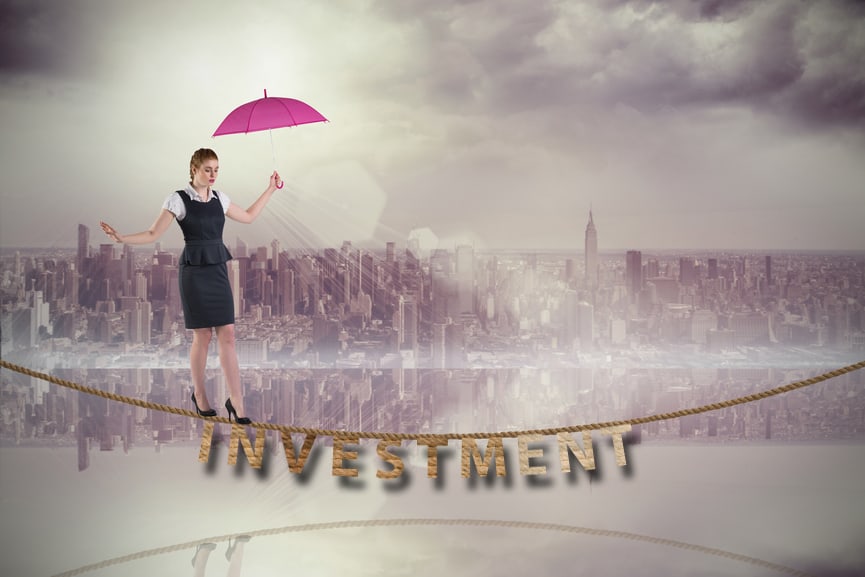Why Playing It Safe Could Hurt Your Retirement

A new survey from Bankrate indicates that many Americans hold quite a low view of the stock market. In answering what was the best way to invest money unneeded for at least 10 years, real estate (25%) and cash (23%) took the top spots, followed by the stock market and gold (16% each) in a tie for third. This comes on the heels of Bank of America finding that cash levels in portfolios are at their highest since November 2001.
In a time of volatility in the market, many Americans, particularly those who are young and/or without a huge amount of money to invest, are hesitant. They prefer the certainty of a house or even cash under the mattress to the unpredictability and seeming inaccessibility of the public markets. On the surface, this seems like the safer option, and we understand why many people feel this way. Loss aversion is countered by having a tangible stack of cash that will always be there.
Unfortunately, it’s wrong and can be dangerous in the long term.
What many cash-focused savers don’t realize is that because of inflation, the value of cash fluctuates over time—just like a stock. As Alex Gurevich, CIO of HonTE Investments, points out, that means that cash is subject to bubbles similar to tech in 2000 or the mortgage crisis. Moreover, saving only cash eliminates access to the market’s long-term returns; $10,000 invested in the S&P 500 in 1980 would yield $166,600 at year-end 2015, adjusted for inflation. Even with the ups and downs, in the long run the stock market remains the best place to invest for retirement. (For related reading, see: Why Investors Can Be Their Own Worst Enemy)
Saving cash is still important for short-term emergency funds. But if simply stockpiling cash is your long-term plan for retirement, you probably have no shot unless you’re very wealthy.
Many people may avoid the stock market out of a fear of the bad days when the market tumbles. Some people panic when the market dips (for example, in the event of a major world event like Brexit) and sell most or even all of their stock. Besides the fallacy of panic-selling at play here (you’d be selling low rather than buying low and selling high), by withdrawing from the stock market you miss out on the good days as the price of shielding yourself from the bad. Reporter Spencer Jakab points out in the Wall Street Journal that a couple good days a year produce the entire year’s returns, on average. (For related reading, see: Behavioral Finance: 8 Common Investor Biases That Impact Investment Decisions)
“Investors sit out on some really good days by trying to avoid bad ones,” Jakab writes. “Nearly all of those happen around scary episodes such as October 1929, October 1987 and in 2008 following the collapse of Lehman Brothers. Pretend, for example, that you took your money out of the market following the choppiest episodes over the last 20 years and wound up missing the epic rebounds that made up the 40 best days. You actually would lose money.”
The stock market can be threatening and, sometimes, punishing. But the solution isn’t total withdrawal; on the contrary, find an advisor you trust and create a plan that makes you more comfortable about investing. As Ben Carlson writes, “The alternative for stepping out into the unknown is the known of never building your wealth.”
This article was originally published on Investopedia.com
***

One Comment